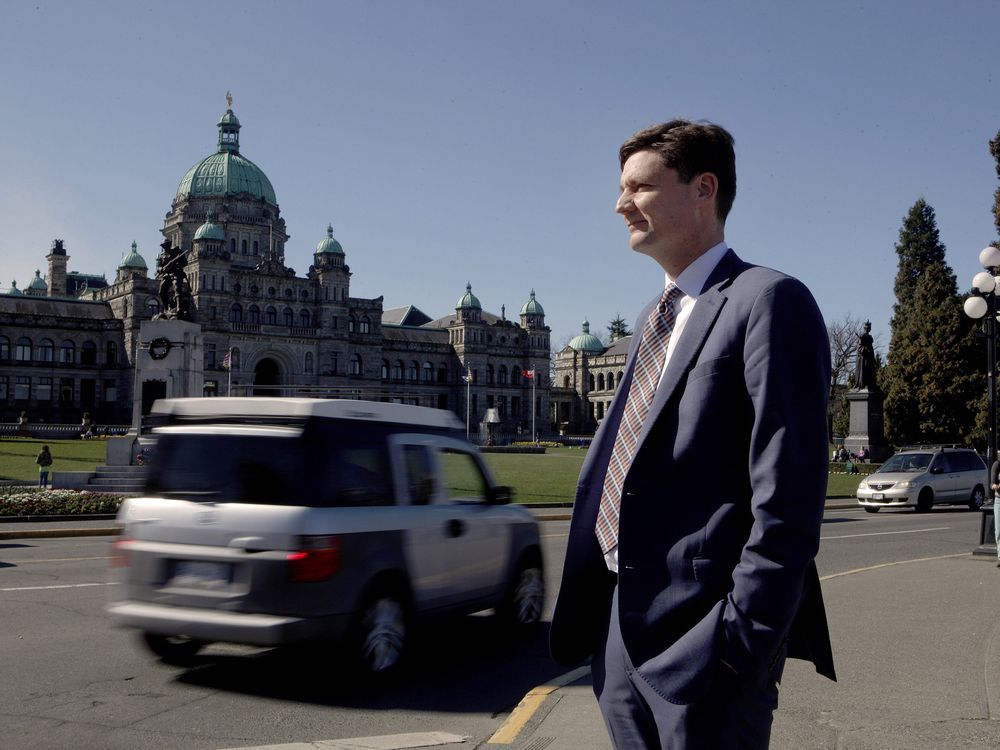ICBC's fairness commissioner to be 'supercharged'

Credit to Author: Rob Shaw| Date: Wed, 29 Jan 2020 22:14:09 +0000
VICTORIA – The Insurance Corporation of B.C. will be placed under a newly-strengthened “fairness commissioner” to resolve public complaints, in an attempt to bolster flagging public trust in the Crown auto insurance provider.
Attorney General David Eby announced the move Wednesday, which was accompanied by other reforms that include pre-litigation payments designed to give crash victims money they are entitled to up front without having to hire a lawyer and go to court.
“Previously if you decided to take any payment from ICBC you couldn’t seek additional settlement money through the courts,” said Eby. “This has led to lengthy and costly court battles.”
ICBC also pledged to put its annual financial information into plain language reports, so that the public can better understand the complex issues and finances in play on insurance rates.
“I don’t think it’s a secret that many British Columbians simply don’t trust ICBC,” said Eby. “And that’s a problem.”
There is already a fairness commissioner at ICBC, with an annual budget of $200,000. But Eby said he’ll introduce legislation that will “supercharge” the office by boosting its presence, making it independent and obligating ICBC to respond.
The goal, said Eby, is to get customers who are unhappy with ICBC’s policies and decisions to take their complaints to the commissioner, who can settle disputes and also watch for trends in the way ICBC is treating motorists. The office will be open by spring 2021, he said.
“ICBC is a big corporation with thousands of employees engaging with hundreds of thousands of British Columbians every year; mistakes are going to happen,” said Eby. “Sometimes in significant corporations like ICBC mistakes can snowball and build as they move through the system, rather than be corrected.”
The fairness commissioner will not displace the civil resolution tribunal process now in place at ICBC for most small vehicle claims, he said. Instead, customers who feel they’ve been treated unfairly by an ICBC adjustor, employee or policy can take the issue directly to the commissioner, he said. B.C.’s independent Ombudsperson’s office will also still be able to take complaints.
Opposition Liberal critic Jas Johal said the changes won’t drive down ICBC rate premiums.
“Today I heard nothing that will help an 18-year-old paying $6,000 a year for car insurance,” he said.
A larger fairness commissioner’s office is “creating a bureaucracy to teach ICBC how to communicate with everyday British Columbians,” said Johal. And pre-litigation payments are only a partial solution to a larger problem ICBC has created over the years by being too litigious, he added.
“ICBC has a poor record with negotiations with victims of crashes, they have hard-nosed negotiating techniques that have led to a lot of those cases going to court,” he said. “If you deal with individuals who are injured thoughtfully and openly, we wouldn’t need this pre-payment Mr. Eby is talking about. Because of their tough negotiations stance, we have significant amounts of court cases sitting on the books with ICBC.”
The changes will do little to save ICBC money, though it may prevent some court costs, said Eby. ICBC lost almost $2.5 billion over the past two years, and its plan to break even in the current fiscal year has slipped off course as well. Eby said the overall financial picture at ICBC that he once described as a “dumpster fire” has improved since a $5,500 cap was placed on pain and suffering claims for minor injuries that saves approximately $1 billion annually.
“I am hopeful that the decline in accident rates that we’ve seen this year and last year are continuing because that is also a significant factor driving costs for ICBC,” he said.
“And I believe that we are at a state where I can say that ICBC’s finances have stabilized. Where we are not is at a place where I can see under the current reforms that British Columbians will be seeing savings on their premiums. That’s where I’d like to be.”
The Liberals have sharply criticized the reforms at ICBC, saying a rate redesign last fall has resulted in massive increases for certain drivers. Liberal leader Andrew Wilkinson has called for ICBC’s monopoly on basic auto insurance to be broken up and for private competition to enter the marketplace.
The private insurance lobby has also commissioned reports suggesting ICBC rates are higher than private insurance in other provinces.
Eby said recent reports are unfair and use data that can’t be replicated when checked by government officials.
He said he’s explored the private insurance option, but concluded that it would result in rate increases of 20 per cent for drivers under the age of 20, rate increases of 17% for drivers under the age of 35, and only benefit roughly one-third of drivers aged 45 and older.
“Unfortunately, that simple solution, the idea we simply privatize insurance… would not provide premium savings for the vast majority of British Columbians.”
Finance Minister Carole James has said ICBC is a major risk to her provincial budget. The corporation has to account for $400 million it had booked in savings by limiting expert reports in court cases, which was overturned on a judicial challenge last year. It is also facing a legal challenge on its minor injury claims cap by the Trial Lawyers Association of B.C.
The association, which represents personal injury lawyers and has criticized some of Eby’s ICBC reforms, said Wednesday it was supportive of the new proposals.
“We are glad to hear efforts are being made to address these difficult systemic issues at ICBC and that the rights of injured British Columbians are rightfully being acknowledged as the primary focus,” said association CEO Shawn Mitchell.